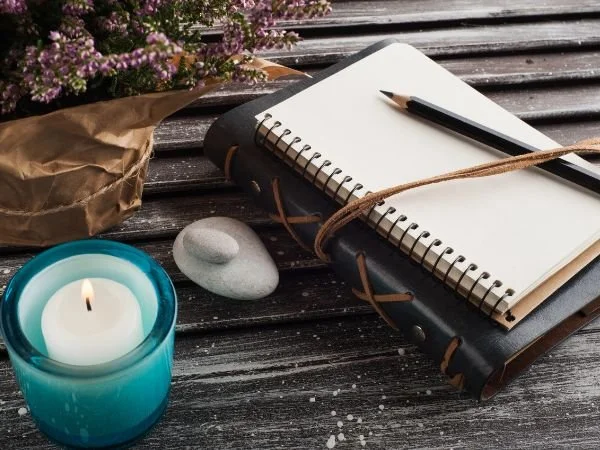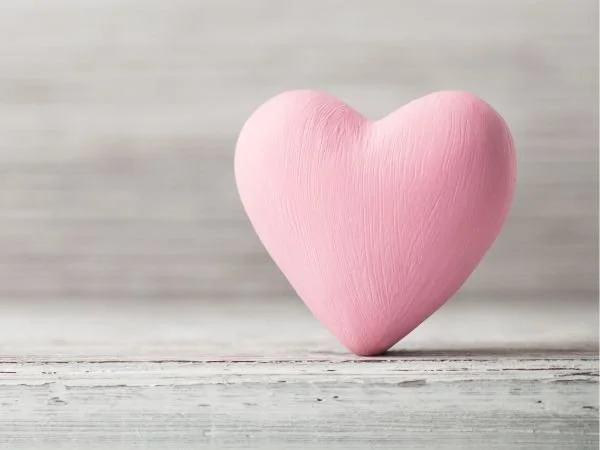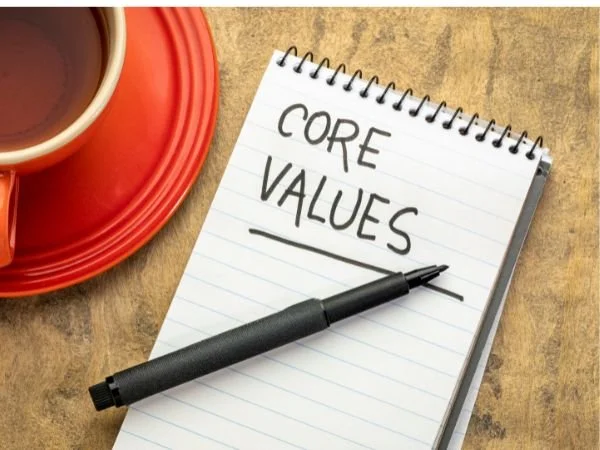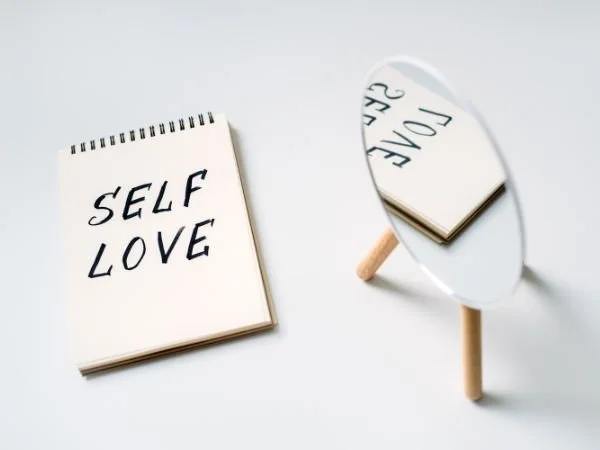37: Healing Your Grieving Heart: Feeling the Feelings of Grief
Grief is one of the best teachers for the human experience. We learn so much from grieving the death of loved ones, but it’s not an easy journey. In this episode, I discuss my own journey with grief, and answer two questions about feeling the feelings of grief.
This post contains affiliate links to some of my favorite tools and resources. As an Amazon Associate, I earn from qualifying purchases. Full terms & conditions here.
More Episodes on Grief:
16: Grief Guilt: How to Heal Your Relationship with Guilt Throughout the Grieving Process
03: Grief is a B*tch: Advice on How to Heal from Grief and the Death of Loved Ones
Episode References:
Here is my Angry Music Playlist on Apple Music
This is filled with music that helps me move my anger, but I recommend you take it as inspiration and make your own!
Timestamps:
0:00 Intro
7:59 Listener Question 1
26:16 Listener Question 2
Have you followed and left a review for New View Advice?
Let me know what you think of the podcast! Podcast followers and ratings help bring new listeners to the show, as well as help me to continue creating content. So if you enjoyed the show, I’d love to ask you to follow and leave a rating on your podcast platform by:
Head to New View Advice on Apple or Spotify
Click Follow on your podcasting platform
Scroll down (or when promoted) click the 5 star rating!
-
This podcast was transcribed by an AI tool called Otter. Please forgive any typos or errors.
Amanda Durocher 0:00
Welcome to New View Advice, a safe place for you to ask your most vulnerable questions about life, relationships, healing, and so much more. I'm your host, Amanda Durocher, and I believe our fears and traumas are often what holds us back from living life to the fullest. Join me here each week as I offer advice on how to move through whatever is holding you back from being your best self. Let's get started.
Amanda Durocher 0:27
Hey, there beautiful souls. My name is Amanda. And this is New View Advice. If you're new here, this is a healing centered advice podcast. And what I mean by that is that it is my intention to offer you guidance along the healing journey. It is not my intention to give you all the answers because I believe you have all the answers you seek, you just may need a little help along the way. Thank you for tuning into today's episode today we will be talking about grief and specifically grief when it comes to the death of loved ones. We grieve so many times throughout our lives. Anytime we go through a major life change, grief is involved. Anytime we go through a breakup grief is involved anytime a friendship ends, grief is involved. But today we are specifically talking about the grief we feel when people depart from the physical plane and when our loved ones are no longer physically with us. So today we're talking about grief and also feeling the feelings associated with grief. I think that as we are moving through the grieving process, it can be really easy to get stuck in the grieving process. Because we don't allow ourselves to fully feel all the feelings involved with grief. One of the stages of grief is anger. And I think that a lot of people can feel guilty when they feel anger when they feel angry at a loved one for passing. So sometimes we stop the grieving process by not allowing ourselves to fully feel the feelings. So today we're going to be talking a lot about feeling the feelings of grief. Grief is one of my favorite topics to discuss, because grief has been one of my greatest teachers. And it's also what started my own personal healing journey. So if you're new to the podcast a little about me, I started my healing journey, actually seven years ago, because today when this episode is released is the seventh anniversary of my friend's death, Michael Dolan rip. And that is what launched me into my healing journey, which involves so much more than just healing from grief or just healing from the death of loved ones. I have healed so much since then. And I am still healing so much. And I've also gotten to a point where I get to just be, if that makes sense. I feel like for so long, I was so focused on healing, because my heart was so broken for so long. And now I'm at a point in my life where it doesn't mean I'm not still healing, but I get to just be a lot of days, I get to be happy. I get to be joyful, I get to be loving, I get to be peaceful. And that all started because of my choice to heal from grief. So for me, it's interesting to be recording this episode around this time around the anniversary of my friend's death because it's made me quite reflective on the past seven years. I'm surprised it's only seven years if I'm honest, it's felt a lot longer. But it's also felt a lot shorter because as anybody knows who grieves the death of a loved one, it can feel like they were just with us yesterday. And it can also feel like they've been gone for so long. So with grief I find a lot of dichotomies exist where we can feel angry and loving at the same time, we can feel sad and happy at the same time. And it's just filled with a lot of different experiences that don't often go together. So before I jump into today's episode, I wanted to share a poem I wrote about my friend Michael Dolan, because as I was prepping this episode and outlining my response to the two questions I'll be answering, I found myself feeling some feelings. It's been seven years, but it doesn't mean grief doesn't still arise. What I believe healing through grief means is that you're no longer stuck in the feelings and you're able to just allow them to arise when they arise. It doesn't mean I never cry about Michael Dolan, I cried when I wrote this episode. When I wrote this poem, I had some tears come and writing this poem helps me to process those feelings. But I no longer live in the heavy emotion. So if you've experienced the death of a loved one, you know how heavy the feelings can be, and you know how they can feel like they're never going to go away. And by allowing myself to move through the five stages of grief, which we'll talk about, which are bargaining, denial, anger, depression and acceptance, I feel liberated from the grief but it doesn't mean it doesn't come. Sometimes it doesn't mean it doesn't arise. But when it does, I don't feel overcome by it. I don't feel like the wave is taking me and I'm twirling and tumbling within the wave. I feel like I'm riding the wave of grief, if that visual makes sense. So before we jump in, like I said, I just wanted to read this poem I wrote in honor of my friend, because this episode is really an honor of Michael Dolan who I still miss regularly. And again, it doesn't mean I'm unhealed, it just means that I'm human, that I still miss my friend. And that certain things happen. And certain songs come on. And I think of him and I either feel really happy or I can feel really sad. It's just human. We don't have to judge the grieving process as well. Yeah, I just feel like grief taught me what it was to be human in so many different ways. Through the heartbreak, the sorrow, the anger, the denial, it all just taught me so much about how brief life is the brevity of life, as well as the importance of life and how much there is to be grateful for, as well as the importance of allowing myself to live with an open heart because life's so short, and we only have one in this human body. So it's so important for us to learn to lean into the vulnerability of grief and the humaneness of it. So I just wanted to share this poem before we jump in, and then we'll get started with question one. As I've mentioned in previous episodes, poetry is a very helpful tool for me personally on my healing journey. As I write poems, I feel myself processing emotions, and it allows them to move rather than be stuck in my body. So if you've ever considered writing poetry, I highly recommend it as a healing practice. And I don't usually share my poems I write poems pretty regularly. But I felt called to share this one in honor of my friend Dolan, and in honor of anyone else, grieving who might find these words helpful and healing. Today, I sit here and think of you, and how much I loved you, and you never knew that your laugh and smile would brighten my day, and that you were so humble in every way. I miss your physical presence and your snarky remarks. And all those times we laughed, drank and sang in the dark. And that spending time with you felt safe like home, you changed my life in ways you've never known. Your death led me down along in windy path, filled with tears, sadness, and a whole lot of wrath. You were one of a kind of four leaf clover, I still can get sad that you'll never come over and see this new life I built brick by brick, because your death left me with no magic tricks. Instead, I learned to go within and care for myself with affection. And that life is a journey that can be so swept. So it's important to stop and remember that it's really a gift. This newfound life is in honor of you, and how I live each day like it's brand new. So today, I remember you with a smile on my face. And think to myself that by God's grace, I got to know you for a brief time in my life. And that I'll see you again in the afterlife. Thank you for being an incredible friend, you will live on in my heart until the very end. Thank you for letting me share that with you. And with that, let's jump on into today's episode.
Amanda Durocher (listener question) 7:59
My brother died three years ago, he died of a drug overdose. And recently I've been feeling really mad at him for not telling anyone that he started using drugs again. My brother had gone to rehab, but relapsed and none of us knew. I know he had his demons. But I wish he had come to me often feel depressed, angry. And like I was a bad sister, because I had no idea he was struggling. I didn't even realize he was doing drugs again. And then often feel bad about being angry at him. Any advice? Thank you for this question. I am so sorry for your loss. I'm sure it's been a difficult time for you and your family. It is always tragic to lose someone we love. And it can be quite shocking and devastating to lose someone suddenly. And I just want to honor where you're at in your healing journey. I know you mentioned it's been three years. And I want you to know that's not a long amount of time. In my eyes. I think when we experienced trauma, it takes years to heal at especially the death of a loved one, it can take years. And I just want to honor where you're at in your healing journey, and let you know that I am sending you so much love. So I first want to say that how you're feeling is incredibly normal. I think as we grieve this is something everyone goes through. We all have to move through anger and it's often anger at those that have left the physical world. And we can feel really guilty about that. So as I mentioned in the intro, there are five stages of grief, denial, bargaining, anger, depression, and acceptance. And it sounds like you're currently moving through anger and depression, probably riding the wave of one and then the other and that's also totally normal. I always like to mention that these are five stages of grief but they don't come and go in five clean stages. We move through them in waves and in no particular order. You can feel denial, anger, depression and anger that denial and bargaining. There's no clean way to move through these. I think that the five stages of grief are really helpful to be aware of so that for sample when we feel that anger, we know that it's normal. And we don't judge ourselves for feeling anger, because it's just a part of the process that everyone moves through. And I found there's really no missing it. There's times things happen, and I'm grieving. And I'm sad, and I don't think I'll feel angry. And then what comes next anger? So I just want to offer that to you. Because when I read your question, I think it's very normal, how you're feeling, and I don't feel like you need to feel bad about being angry at him, I think that it's healing to be angry at him. Because what we go through when we go through the grieving journey, too, is I think, when people die, we put them on this pedestal of death. And we view them for all their amazing qualities which the people who die in our lives who we loved had amazing qualities. But the anger phase comes when we recognize the humaneness of their journey, when we admit to ourselves, they weren't perfect. And that's devastating, we can even feel angry just for them dying. And that can make them human, right, because we don't like to think about how everyone's going to die. At some point in time. It's just true. As humans, we're not immortal creatures. We die at some point, it's a cycle of life. And we don't need to think about that. So when we're grieving somebody, oftentimes we have to feel angry that they died at all. Because we are angry because we're left here feeling devastated, feeling upset, missing them, and we're angry they left. But that to me is us being angry at their humaneness. So I find that that's a very common step throughout the healing of grief. So I just want to send you compassion and grace. It's okay to be where you are. As I mentioned, it's healthy, it's important to allow yourself to feel this anger, and it's safe to feel angry at him. You can love him, you can miss him while still being angry at him. You can no he was the best brother and still be angry at him. One does not negate the other grieving is really complicated. And it can feel confusing, because we often feel contradictory emotions at the same time, as I mentioned in the intro, and that's okay. And losing someone to a drug overdose is incredibly difficult, because it can be easy to place blame on ourselves and convince ourselves that we could have done something differently to stop it to prevent it. And this is very common with tragic deaths with shocking deaths for the people who survived to blame themselves to put blame on themselves to think in their heads a million scenarios where this devastating incident didn't happen. I know this is how I felt with my friend's death. I had absolutely nothing to do with it. There was nothing anyone could have done. But I blamed myself. I played through a million different scenarios, many very unrealistic where I could have prevented this tragic event from happening where my life wasn't left devastated where a lot of people's lives weren't left devastated. So I do another episode called grief guilt, because I think guilt is a very common emotion that arises throughout the grieving journey. I think we feel guilty for what happened. I think we feel guilty for feeling our feelings. And I think we feel guilty when we're ready to move on and start our lives in a new way. And I just think guilt is very common, also throughout the grieving process, because it can feel unnatural, the grieving process, but I believe one way we honor those who loved us is to feel our feelings, to allow ourselves to be human. Because when we do that, we're able to move through and process this grief. And I believe the best thing we can do for our loved ones is to live life to the fullest. I think that's all anybody wants for us. And I believe when our loved ones pass on, that's what they want for us to. They want us to see that life as a gift that life is short that life is brief. And even though things are going on in the world that are fucking insane. The world is absolutely crazy right now. And it is so easy to fall into fear, to fall into anxiety, to fall into depression. Our loved ones from the other side, want us to remember that life is a gift that life is short and find different ways I believe, to be grateful to open our hearts to process these feelings. So we can be liberated. And I find that grief, at least in my own life has been a driving factor for the things I do. Grief brought me to writing. What a gift. Healing grief is a reason I wanted to start this podcast. What a gift. Grief taught me how to be a better friend. What a gift. Grief taught me how to sit with my own heart. What a gift. I also want to mention that I think that we blame ourselves or we replay when somebody dies in our head as a means of control. So shocking deaths and death in general is so outside of our control But our minds want to feel in control because it's the only way we feel like we can process it. Because it can feel really scary to accept that things are really outside of our control and grief. And the death of loved ones is a mirror that you cannot control life, you cannot control other people. And everyone is on their own path, their own journey. The human experience is an experience where we each get to experience life, how we each so choose, grief and the deaths of loved ones can feel so shocking to us because of that realization of how out of control life is. So the first time we lose someone who meant a lot to us, it can feel so shocking, because our human awareness can't comprehend at the beginning, what it feels like to be so out of control, because it's a mind flip, where if you've been trying to control life for a really long time, which I know I was, before I began my grieving journey, I was trying to compartmentalize everything, I was trying to keep all these puzzle pieces away from each other. And I was trying to control my relationships with people. And when this death happened, it was like boom, my world shattered. And all of a sudden, I had all these pieces. And I couldn't put them back the way they were because they were never actually together in a healthy way. So I had to start like one by one like picking up the pieces of my heart picking up the pieces of my life. And looking at what was true what I wanted to keep what I was finally able to look at because I've used this example a lot. But when my friend died, it was like, all of a sudden, the lights got turned on into my inner world. So I had been living in the dark I had been living asleep is how I consider it. And a part of me woke up. A part of me woke up with this death, a part of me snapped out of the amnesia, that life isn't a gift that we just supposed to move through the motions. I was just moving through the motions. And I woke up with this experience, I snapped out of the amnesia that I could control life. And when my friend died, it was like the lights got turned on. And I looked around, and the room was a fucking mess. The windows were shattered, clothes were strewn everywhere, there was dirt, there was grime. And it's like, I looked around. And I was like, How the fuck did I get here? What is going on. And it was piece by piece of picking up my inner world and the feelings of being shattered that brought me back to wholeness, brought me back to my own heart. That taught me that the love I was seeking outside of myself was really a love I was seeking from myself. So grief can just rock our worlds in really difficult ways, but also in beautiful ways. So as I mentioned, we can blame ourselves for the death of loved ones. So you are angry because you didn't know your brother had relapse. And I'm guessing there's a part of you that thinks maybe if you had known things could have been differently. And I think that it's a way of us trying to make sense of what happened to blame ourselves to control it. And by telling ourselves things could have been different. It's a way of us trying to grasp back control of the situation. And I mentioned this because you say you felt like a bad sister. And to me this is a coping strategy that if you were a better Sister, this wouldn't have happened. And that's just not true. I just want to assure you that's not true. There's absolutely nothing you could have done. This was a tragic thing that happened. It was outside of your control. And I'm sure you were a great sister, and you obviously care so much about your brother, and you still do and that's so clear. So I just want to offer you compassion, grace, and that I believe it's time for you to let yourself off the hook. Allow yourself to forgive yourself for what you could not control. Allow yourself to see this was a tragedy, awful, terrible, heartbreaking, world shattering tragedy, but it was in no way your fault. Allow yourself the grace to let yourself off the hook. So I also want to mention that it sounds like you're in the anger phase. So my advice for you is to find some healthy ways to processes anger. Anger is so important to move and so important to feel because if we don't move it, it can wreak havoc in our lives by coming out at unexpected times. I often describe anger as a lioness, and when my anger is caged aka shoved down, not felt and ignored. She lashes out like a caged lion. But when I allow that anger when I allow it out in a healthy way SHE ROARS and roars and moves at an incredible speed. So here are a few suggestions I have for feeling anger in a healthy way. So one is journaling journal about your Anger allowed all those feelings out. Or you could choose to write in a creative outlet, writing a short story about your anger, writing a story about you and your brother, you could even write a story about how you wish it played out how you wish it was different and with a different ending, to allow yourself to just feel that experience that may be stuck that you wish things could have changed. Just allow yourself to move these feelings and to play out scenarios that maybe you're playing out in your head, write them down and you can write them down as stories. As I mentioned in the intro, when I read my poem, I find writing poetry really helps smooth feelings. But finding a writing outlet can be really helpful for you. Or if writing is not your thing. You could look into different creative outlets I find painting can be really helpful to move anger angry painting, color outside the lines scribble with crams, allow yourself to put on an angry music playlist. I have one that I can hook in the show notes. It's very me my anger playlist. So I invite you to create your own but allow yourself to move through creativity can be really healing. I found that to be one of the most healing things for me is to allow myself to move through things in creative outlets. When I have a really heavy thing. I write screenplays because they take me months, if not years. And I really find I'm able to process a lot of emotions through writing a full feature length film about it. Another therapeutic way to move your anger is to utilize nature, throw rocks in the ocean, kick a tree, and then they can acknowledge the tree. But allow yourself to hit the Earth with your hands splashed around and water going out into the woods stomping your feet and screaming screaming is another way to really move anger. I find if I pent it up for too long. Sometimes the only way to move it is to use that throat chakra and allow the anger out in a vocal way. I find using my throat chakra really healing personally, and you can scream in your car, scream into a pillow scream in nature, find a healthy way to scream, I think that it's important for us to find healthy ways. And when I scream, I definitely want to be by myself because I find those heavy feelings can be really difficult for other people to be around. So finding a healthy way to let that rage and anger out can be really helpful. You also can punch pillows, hate your bed with your pillow repeatedly, I find that it doesn't take too many hits of a pillow for that anger to move. And oftentimes another feeling arises or I just feel a sense of calm. And another one that I recommend is smashing shit. So smashing stuff. There are places you can go to smash stuff. I know they have one in Los Angeles, and they have one in Phoenix where you can pay to smash stuff. I know I found this helpful. And people I know find this helpful as well. I also have created spaces in my home. I've used my garage as a space to smash stuff. So I'll go to Walmart, buy a pack of inexpensive plates and smash them into a garbage can wear protective eyewear. Take care of yourself in all these practices, please practice safety as well. And that's why it can be helpful to plan a time to process your anger because then like I said, you can set up a trash can and put on protective gear, wear clothes that fully cover your body, and then go smash things or going to one of these places where you can pay to smash stuff. It allows you to prepare yourself mentally for feeling and moving that anger. I also think exercise is another way you can process anger. I like to angry run. I know you can try kickboxing or a movement where you get to hit things in a healthy environment. I find yoga helps me move my anger. That one's a little harder. It moves a lot of feelings for me to do yoga. So those are just some suggestions I have for moving that anger for feeling that anger in a healthy way. I also recommend finding a therapist if you don't have one already. It's really helpful to talk this out in a safe space. And I recommend finding a therapist who's worked with people who are grieving loved ones and specifically for you possibly finding a therapist who's worked with people grieving the loss of loved ones who have drug overdoses. When you're interviewing therapists, you are allowed to ask as many questions as you want, you are allowed to get to know them as much as they are getting to know you. It is a mutual relationship. It is not you finding the first person does you find a good fit for you on your healing journey. I know a woman who describes it as finding a therapist is like finding a good pair of shoes. Not every pair of shoes is gonna fit. I truly believe that about therapy. I have had more bad therapists actually than I've had good therapists. And now I am very picky. And I have a lot of questions that I asked ahead of time. So I invite you to explore video therapists if you haven't and to ask the right question. So asking if they've worked with people have expired. That's what you've experienced, asking what techniques they use, asking if they accept insurance. And if they don't asking if they have a sliding scale rate, asking all the questions so that you can go into a healthy and safe relationship with this therapist. And the last thing I want to say is that I think you may be feeling these emotions for a while. So the best thing you can do is find ways to feel them. And also just not judge yourself for having them. If you're feeling angry, do something that honors that anger. If you're feeling depressed, give yourself some self care. Allow these feelings to arise. Many people who aren't very emotional can be overwhelmed by the grieving journey, because it can be the first time that they feel so many emotions. So the best thing you can do for yourself is be your own best friend through this. Be kind to yourself, cheer yourself on when you cry, tell yourself that's fine, that it's healthy, that it's good. Feel those feelings love yourself. And I wanted to mention that when the heart breaks, it often breaks open, and that the most heartbreaking experiences often allow us to love more because of all the wisdom and self love we gain through our own heartbreak. I hope something in this answer was helpful. I'm sending you so much love as you continue to process your grief. Thank you for this question.
Amanda Durocher (Listener Question) 26:16
I listened to your podcast episode on grief, it helped me Thank you. My mother died six months ago, and I still miss her every day. She died of cancer. So even though it wasn't unexpected, I still didn't think she'd actually die until she was gone. She was my best friend. And I've been having a hard time processing her death. Well, this feeling of grief ever go away? What can I do to feel it less? Thank you for this question. I am so sorry for your loss. And I am so sorry to hear of your mother's passing. Losing a parent is never easy. And it sounds like you two were close, which I'm sure makes us an incredibly difficult time for you. I also want to say that six months is not a long time. So I'm not surprised you still miss her every day. I just want to say for anyone out there who's judging themselves for the length of time it's taking to heal. Please don't. This could take years it could take forever. Don't judge yourself for where you're at. I have had other people mentioned that six months or even less is a long time. And we should be over our grief or trauma within six months. I do not agree. I think that it's never less than a year. Because a year will be filled with all the first first Christmases without them first birthdays without them first anniversary. First time you hear that song that makes you think of them first time you go on vacation without them. All the firsts are within that year. And sometimes they come the second year. But those first will oftentimes bring up feelings bring up memories bring up those feelings of grief. I'm just inviting you not to judge yourself. Because I think that we're able to process grief and you don't have to be in pain forever. But it's when we let go of a timeline that it actually becomes easier and smoother to move through grief. When we keep ourselves on timelines, it often actually keeps us stuck. So it's not a helpful mechanism for healing. To think that we need to be on a timeline, it's important to let go of your idea of time. And just allow yourself to be in every present moment. Because that's when you'll allow those feelings to come up in every present moment. And that's how we become more present, which is helpful along the healing journey. And really what life's all about is being present to every present moment. And when we let go of time, we're able to be present. Because we're not looking to be in the past, or the future. We're just living for the now. So I really think that we have to stop judging the length of time it takes for our hearts to heal. It's going to take as long as it takes, it's a step by step day by day process. And as I mentioned, it moves easier when we don't judge ourselves throughout the process. And I'm sorry to hear that you're having a hard time processing your mother's death. I think that's very normal. The death of a parent is incredibly difficult. So I honor all the hard feelings you're having throughout this process. Our parents are such core figures in our life. And if we have a good relationship with them or not, they have a major influence on us and their deaths can bring up grief as well as so much unresolved wounding from childhood. So it can be a confusing road to navigate as you grieve and as you heal. So for your question, Will this grief ever go away? I can't promise you'll never be sad, but I can promise you with time and with allowing yourself to feel the feelings it will get easier and the feelings will become less intense and the waves will be shorter and longer in between. So it doesn't mean you'll never feel sad again. As I mentioned when I was outlining this episode Oh, I cried when writing the poem I mentioned at the beginning, I actually was having a hard time answering these questions, until I allowed myself to feel some grief, to feel sad to allow myself to cry. And I asked my heart what it needed. And it said it wanted to write a poem. It said, I want to processes through poetry. So I wrote a poem. I cried while I wrote it. And then I was able to outline and answer these questions. And that's my process is sometimes when these feelings arise, it's stopping what I'm doing, and asking, What do I need right now, because when I stopped and allowed myself to write the poem, I was able to move through the grief in about 1520 minutes, rather than it taking me days and hours, because I was trying to force this outline. So if I continued to try to answer these questions, without stopping and asking myself what I needed, then this episode probably would have taken a lot longer for me to outline. But when I allowed myself to pivot, give myself what I needed, I was able to come back to this with a newfound outlook and peace on my heart. So at first, when someone dies, the feelings can feel all consuming and endless because they are so raw, and they're right there on the surface, but that rawness heals with time, and the more you feel them and love yourself through this process, the less all consuming they'll feel. I believe when grieving that the goal isn't to never feel grief. Again, the goal is to learn how to be with your grief and not run away from it. Not to be afraid of it. hard feelings are filled with wisdom. We are better people for feeling the hard feelings, we become more compassionate to ourselves and others, we are able to sit with our own pain and others pain. When we stopped running from our own inner worlds, I can host this podcast because I have sat with my pain. So I can sit with yours and not be afraid of it or triggered by it. I can honor it. And I can see how hard it is. And also know that you can heal from this and grow from this and help others with all the knowledge you gain if you choose to do so. But I believe our compassion, our empathy, our humaneness grows, when we feel the hard feelings. When we stop running away from who we are, and how we're feeling. I think the world would be a better place if we all sat with our own hearts and acknowledged our own pain and stopped trying to shove it down or ignoring it. Because I think our hearts grow from pain. It changes our perspective. It allows us to be more compassionate beings. And for your question, how do you feel it less? Well? I think the answer is you allow yourself to feel it fully, to feel how painful it is when the feelings are very strong and intense. And over time, it will feel less intense. But truly there's no magic pill the grief inside you is yours to feel and yours to be honored. Grief seems so scary because it can feel so endless. But with time it does get easier. And it really holds so much wisdom. As I mentioned, grief has taught me that life is a blessing. I took life for granted before I sat with my grief. Grief also taught me that life is fleeting. So this influenced my decision to live in untraditional life. But to live life my way, we demand a way and to honor that no one might understand why I do the things I do. But it doesn't matter. It truly doesn't matter if people don't get me. It took me a really long time to get there. But it doesn't matter to me if people don't understand why I do the things I do. Because I wouldn't have it on the other way. Because I live my life following the direction of my heart. Nobody else has mandus heart, nobody else has my heart. So people aren't always going to understand why I make the decisions I do why I live on traditionally. But this is the guidance of my heart. And I know that when I follow that guidance, I am led to a more fulfilled life. And grief taught me that no one is going to honor my heart except for me. Grief taught me that as well. Grief has also taught me to stop running away from my feelings and was the introduction to my inner world, which is where I truly met my heart for the first time. My heart was always speaking to me. But it wasn't until my grieving journey that I started to listen. And I think that before we have moments where our life is shattered, and where a lot of us consider them our quote unquote wake up moments, and we think we know ourselves. But it's not until we realize how disconnected we've become that we realize that we need to take the time to get to know ourselves and the death of a loved one. And the death of a parent also teaches us to get to know ourselves because oftentimes we depend on our parents for support and love and when we lose them, it becomes so important to sit with our own hearts because that's where we're going to gain that love and Support again is through our own hearts. And the more we sit in communion with ourselves, the more we can feel that love that those ones from the other side are still offering us in this life, but just not in the physical anymore. I offer all this because grief can seem so scary, but it truly does hold so many gifts. But it takes a courageous soul. It takes a lot of bravery to go into that cave, and sit with the grief. But it will empower you and heal your heart in unexpected ways. It holds gifts that are only for you. And as I mentioned, the gifts I've gained from grief, I think everybody gains their own gifts from grief gains, their own perspectives, their own wisdom, their own next steps. Grief is there to show you, as I've mentioned your humaneness. You're not indestructible. Life isn't forever, you don't have an endless amount of time to do all the things you tell yourself, you're gonna do you have now you have today, you have this present moment, nothing else is guaranteed. That's what grief teaches us. I'm so sorry, you're having a hard time, I can tell you that it took me years to process and to fully move through the death of my friend. In the first six months, I was still devastated. It took me five months to go to therapy. So for me when I was grieving, I was in a downward spiral when my friend died for five months. And then I hit a rock bottom moment, and I found a therapist and then it was a long journey back up from rock bottom. So there is no judgment here for wherever you're at. As I mentioned in the previous question, I think that therapy could be helpful for you if you don't already have a therapist. And I truly believe if you can find a creative outlet to allow yourself to feel some of these hard feelings. It will help you to process the hard feelings you have. So finding an arts and crafts, finding painting, writing, acting an improv class, finding creativity will help you to process these feelings. And I find creativity helps us to process them in ways that can feel less painful. And I'm just sending you so much love. I know this may not be the answer you wanted to hear. But I do hope it brings comfort to you that you're not alone. And that this grief too shall pass or at least become lighter along the way of your healing journey. And I am sending you so much love. What you are moving through is not easy. offer yourself compassion, Grace. And I hope you are taking the time to do a lot of self care. So allow yourself that time to yourself to give yourself ease. So that's feeling the feelings that's journaling, that's meditating that's bubble that's, that's spending time with friends and family who fill your cup up. Allow yourself to not always have to be the most quote unquote productive. Allow yourself instead to just offer yourself whatever you need, because six months really isn't a very long time. And allow yourself that allow yourself to know that and to continue to give yourself the things you might have been giving to yourself in the first month after your mother passed. And maybe even the second month allow yourself to continue to offer yourself Self Care self love, self compassion. I am sending you so much love. Thank you so much for this question.
Amanda Durocher (Outro) 38:22
Thank you so much for tuning in to another episode of New View Advice. As always, I am so grateful to have these conversations with you each week. I hope that you found something helpful throughout today's episode. I personally enjoyed having this conversation because as I mentioned, grief is one of my favorite topics. And it's not something that people often want to talk about. It's often a conversation that can shut down a conversation. So I'm just really grateful for this space to talk with you all about grief. If you found this episode helpful and are looking for a way to support the podcast, I would invite you to leave a five star rating and review on Apple podcasts. So you can leave that through the apple podcast website. Or if you have an iPhone, you can open the podcast app search for the New View Advice page, scroll to the bottom of the episode page and leave a five star rating and review ratings and reviews really helped to bring more people to the podcast. So I would be so grateful if you left a five star rating and review. I know leaving reviews can be intimidating. So if you want to leave your favorite episode in the comments, that would be great because then that would help me to know what episodes people find helpful as well. So thank you again for listening to another episode of newView advice. As always, I am so grateful to be here with you and to offer a new view on whatever you may be going through. sending you all my love. See you next time
Transcribed by https://otter.ai




































